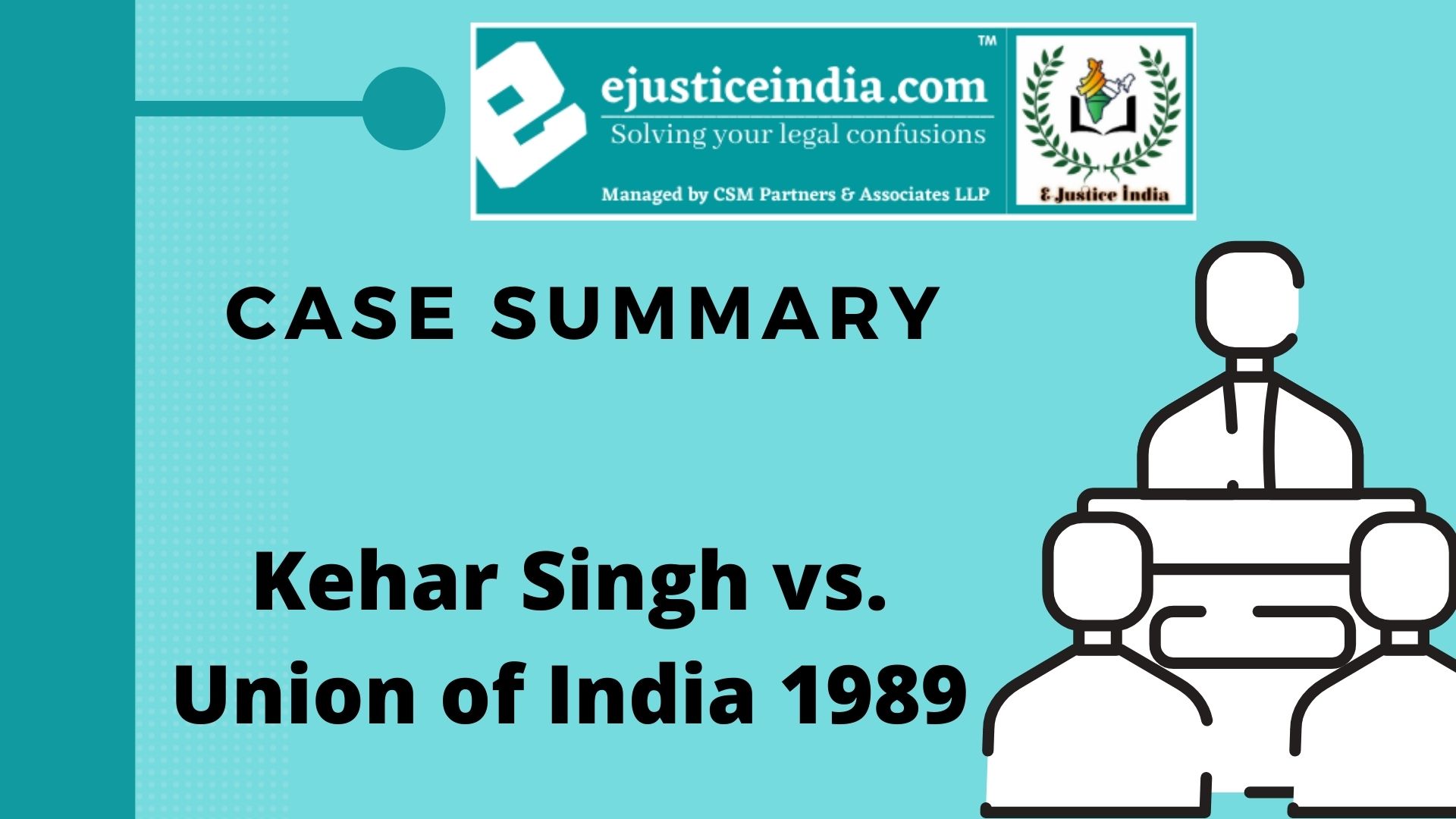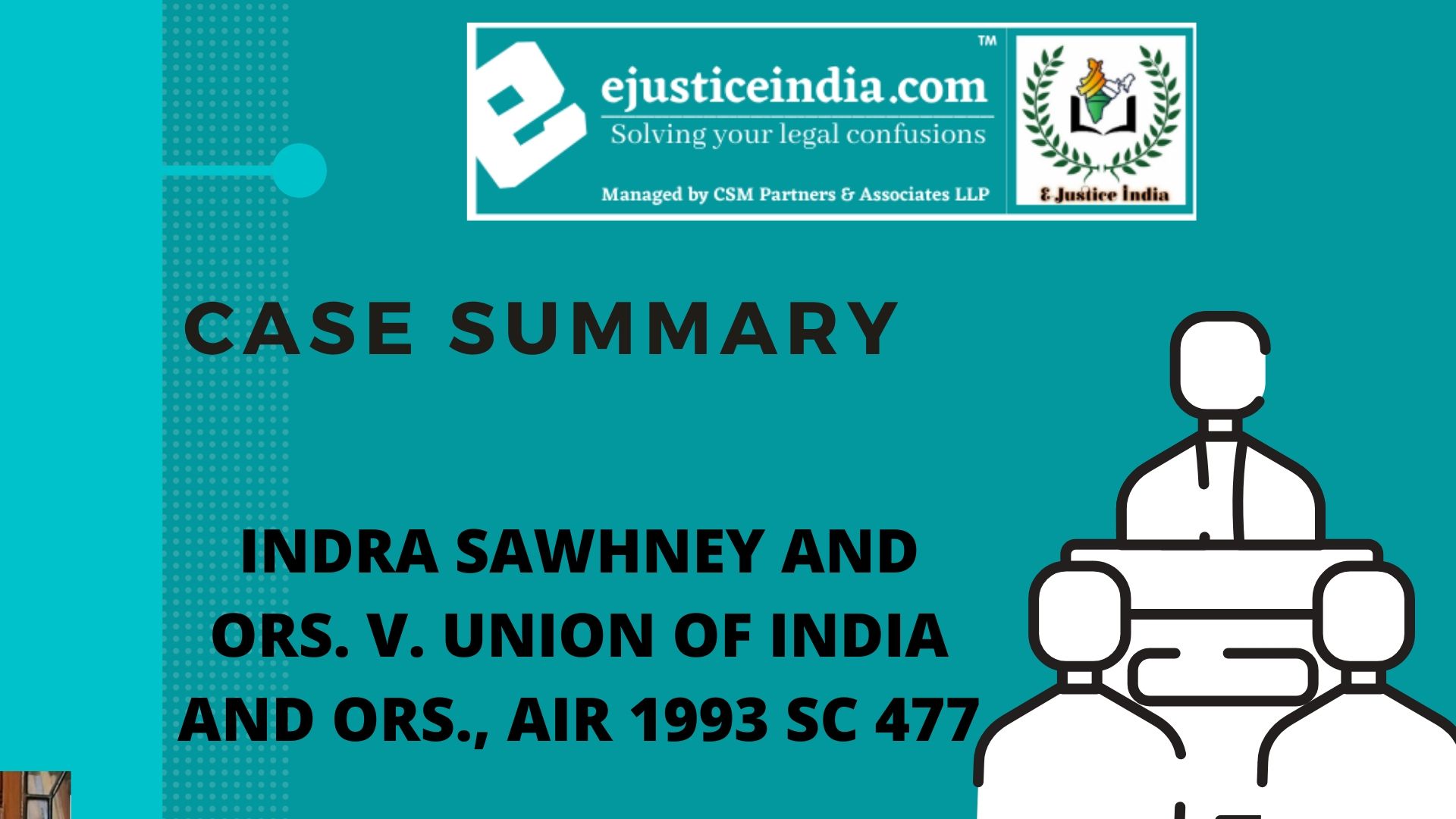Indira Nehru Gandhi vs Raj Narain
Case Name : Indira Nehru Gandhi vs Raj Narain
Author : Ishita Arora
Citation: 1975 AIR 2299, 1976 (2) SCR 347, 1975 Suppl. SCC 1
Bench: ChiefJusticeA.N. Ray, Justice H.R. Khanna, Justice K.K. Mathew, Justice M.H. Beg, Justice Y.V. Chandrachud.
Introduction
The present case is a landmark case for the following reasons;
- It was the first time when the election for the post of Prime Minister was set aside.
- It was the first time when elections laws were amended retrospectively so as to validate the nullified election of the Prime Minister.
- It was the first time when an Amendment to the Constitution was struck down by applying the doctrine of basic structure.
- This case led to the imposition of Emergency in India due to internal disturbance from 1975 to 1977.
Facts of the case
In 1971, 5th Lok Sabha elections were held. Indira Gandhi won the elections by securing 352 seats out of 518 seats in the general elections. She stood against Raj Narain who was the leader of Ram Manohar Lohia’s SSP in the elections from Rai Bareilly constituency which is in Uttar Pradesh. He was so confident about winning those elections that he took out a triumph rally even before the declaration of results. When Raj Narain got to know that he lost elections with a huge margin, he was very disappointed.
Thus, he did not accept his defeat and filed an appeal to nullify the election, contending that Indira Gandhi has adopted corrupt practices during her campaigning for the elections. He filed a petition in the Allahabad High Court. The Allahabad High Court passed the judgment stating that Indira Gandhi’s election is void because she used corrupt practices during her campaign. So, Indira Gandhi filed an appeal against this judgment.
But, Supreme Court was on vacation at that time so she was given a conditional stay. Then, due to internal disturbance emergency was declared. Meanwhile, Indira Gandhi passed 39th constitutional amendment to the Constitution which inserted Article 329A to the Constitution. It stated that elections for the post of Prime Minister and the Speaker cannot be challenged in any Court; it can only be challenged before a committee which is formed by the Parliament only. So, this amendment put a bar on the Supreme Court from hearing the case of Indira Gandhi. Hence, the constitutional validity of the 39th amendment was also challenged in the case.
Issues and fact of law
- Whether the 39th Constitutional (Amendment) Act, 1975 is constitutionally valid?
- Whether the election of Indira Gandhi was valid or not?
Judgement
The Supreme Court held that Article 329A was unconstitutional. The Court struck down the 39th (Amendment) Act, 1975 because it violated the basic structure of the Constitution.
The Court set aside Allahabad High Court’s order and freed Indira Gandhi from all the corruption charges and acquitted her and made her election valid. The reason for the same is that the word “candidate” defined in Section 123(7) of The People’s Representative (Amendment) Act, 1975, states that a candidate is a person who files the nomination papers.
Indira Gandhi filed the nomination papers on February 1, 1971 and any help that she took from Government officers before February 1, 1971 cannot be considered as a corrupt practice. Also, under Section 83(1) (b) and 123(6) of The People’s Representative Act, 1951, if some voluntary expenditure is incurred by friends, relations and expenditure incurred by the candidate’s party without any request or authorization by the candidate is not considered to be the expenditure by the candidate himself.


